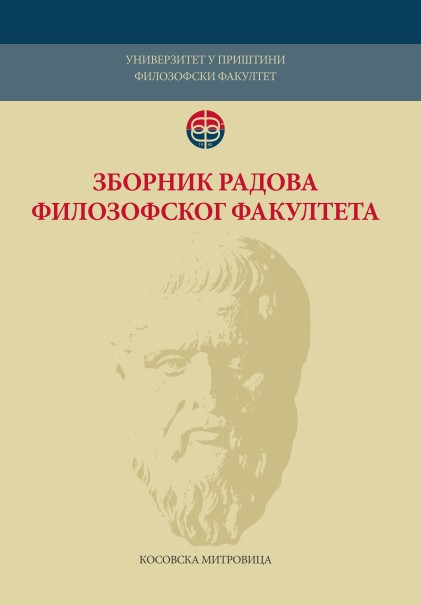Модални изрази, придјеви, прилози и именице као средства за исказивање коријенске модалности у енглеском и њихови преводни еквиваленти у српском језику
Modal expressions, adjectives, adverbs and nouns as means for expressing root modality in English and their translation equivalents in Serbian
Author(s): Tijana Mihić PijetlovićSubject(s): Language studies, Language and Literature Studies, Translation Studies
Published by: Филозофски факултет, Универзитет у Приштини
Keywords: modal expressions; modal adjectives; modal adverbs; modal nouns; root modality; equivalence; English; Serbian
Summary/Abstract: The paper analyses modal expressions, adjectives, adverbs, and nouns expressing root modality in the English language. First, their modal meanings are defined, then their translation equivalents in the Serbian language are analysed. The aim of the paper is to establish the translation equivalents of the analysed words and expressions, the frequency of their occurrence, as well as the level of equivalence. The obtained results show that modal nouns, adjectives, and adverbs in English are most frequently translated by their equivalent modal nouns, adjectives, and adverbs in Serbian. Modal verbs occur frequently in translation and we find them as translation equivalents of modal expressions, adjectives and nouns. As for the analysed modal expressions, it is interesting to observe that some of them (be able / unable to, be to, and be willing / unwilling to) are most frequently translated by modal verbs, while their corresponding modal expressions in Serbian occur less frequently. This high frequency of occurrence of modal verbs in translation can be explained by a wide range of meanings that they express (possibility, ability, permission, obligation, necessity, intention, volition, etc.). When translating modal concepts, translators must be particularly careful as expression of modal meanings can differ significantly among languages. Both English and Serbian have very rich resources for expressing modal meanings and the translator has to decide which of the available resources serves the purpose best in a given context or situation. The theory of equivalence on the level of word or phrase is the most acceptable when translating modal meanings. The lower the level of equivalence is, the higher is the modal correspondence between the source and the target language.
Journal: Зборник радова Филозофског факултета у Приштини
- Issue Year: 50/2020
- Issue No: 2
- Page Range: 33-57
- Page Count: 25
- Language: Serbian

